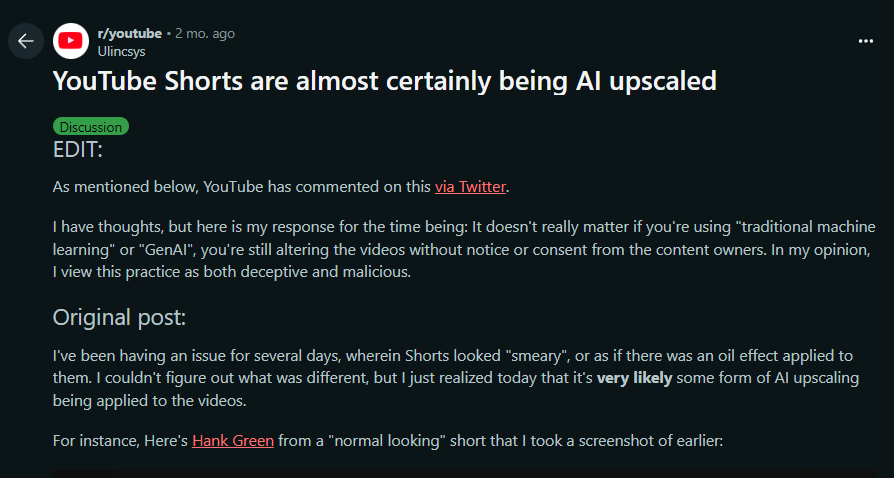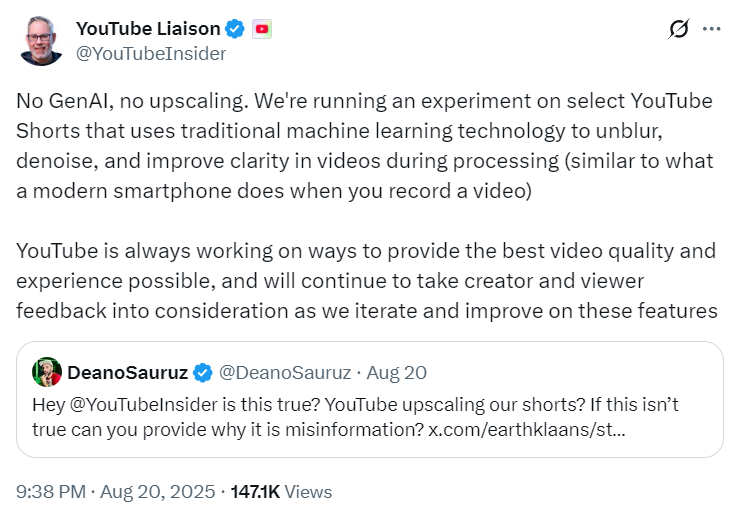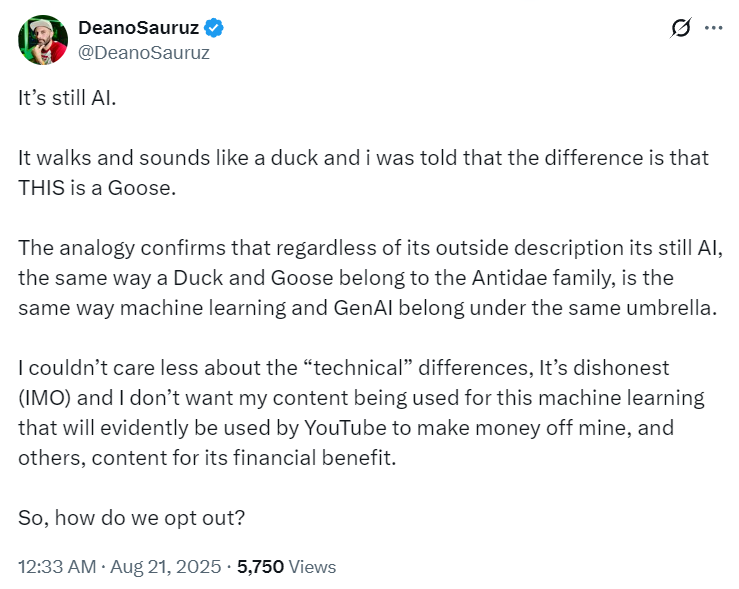Content creators across YouTube are expressing outrage after discovering the platform has been secretly applying AI enhancements to their videos without consent or notification. The controversy erupted when creators began noticing subtle but unsettling changes to their YouTube Shorts that made their content appear artificially modified.
The alterations, while barely noticeable without direct comparison, have created an uncanny valley effect that many creators find deeply troubling. Videos show signs of over-smoothed skin textures, unnaturally sharpened clothing wrinkles, and in some cases, distorted facial features like warped ears. These modifications have left creators feeling their authentic content has been replaced with something that looks artificially generated.

Rhett Shull, a prominent creator whose comparison video garnered over 600,000 views, demonstrated the stark differences between his original uploads and YouTube’s AI-processed versions. His YouTube Shorts appeared significantly “smoothened” with what he described as an “oil painting effect” when compared to identical content posted on Instagram.
“I did not consent to this,” Shull stated emphatically. “Replacing or enhancing my work with some AI upscaling system not only erodes trust with the audience, but it also erodes my trust in YouTube.”
The issue first gained widespread attention through a June Reddit post titled “YouTube Shorts are almost certainly being AI upscaled,” which featured side-by-side screenshots revealing the extent of the modifications. This sparked months of speculation and growing concern among the creator community before YouTube finally acknowledged the practice.

After facing mounting pressure, YouTube’s head of editorial and creator liaison, Rene Ritchie, confirmed the platform has indeed been conducting experiments on select YouTube Shorts. In a statement posted on X, he explained: “We’re running an experiment on select YouTube Shorts that uses traditional machine learning technology to unblur, denoise and improve clarity in videos during processing (similar to what a modern smartphone does when you record a video).”

Ritchie attempted to differentiate YouTube’s approach by clarifying it uses “traditional machine learning” rather than generative AI, emphasizing that their system doesn’t create entirely new content but rather enhances existing footage. However, this technical distinction has done little to appease frustrated creators who feel their artistic integrity has been compromised without their knowledge or permission.
The creator community’s response has been swift and overwhelmingly negative. Twitch streamer DeanoSauruz captured the widespread sentiment in a social media post, saying: “It’s still AI. It walks and sounds like a duck and I was told that the difference is that THIS is a Goose.”

Other creators have been even more direct in their criticism. Comments have ranged from calling the practice “disgusting” for forcing unwanted modifications without notification, to more fundamental objections about artistic consent. One particularly pointed response stated: “This is not ok. You don’t manipulate art without the consent of the artist. Period.”
Many creators are now demanding YouTube make any AI processing completely optional, arguing that the current system undermines the essential trust between platforms, artists, and their audiences. They contend that regardless of the technical sophistication or subtle nature of the modifications, any alteration to their creative work should require explicit consent.
This latest controversy adds to YouTube’s growing list of AI-related disputes with its creator community. The platform recently implemented an AI-powered age estimation system in the United States that has also drawn criticism from security experts and users who worry about privacy implications and potential data breaches.


